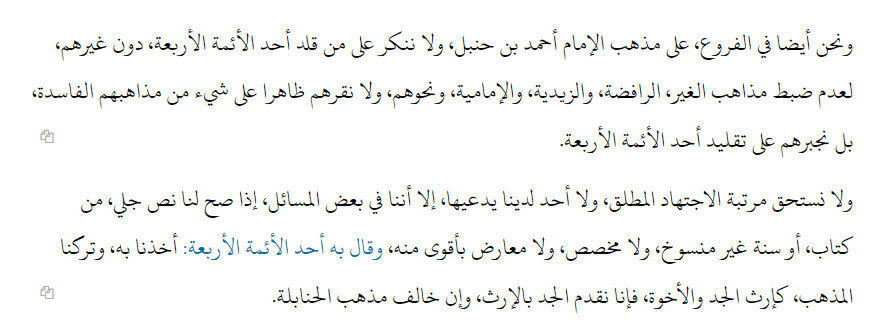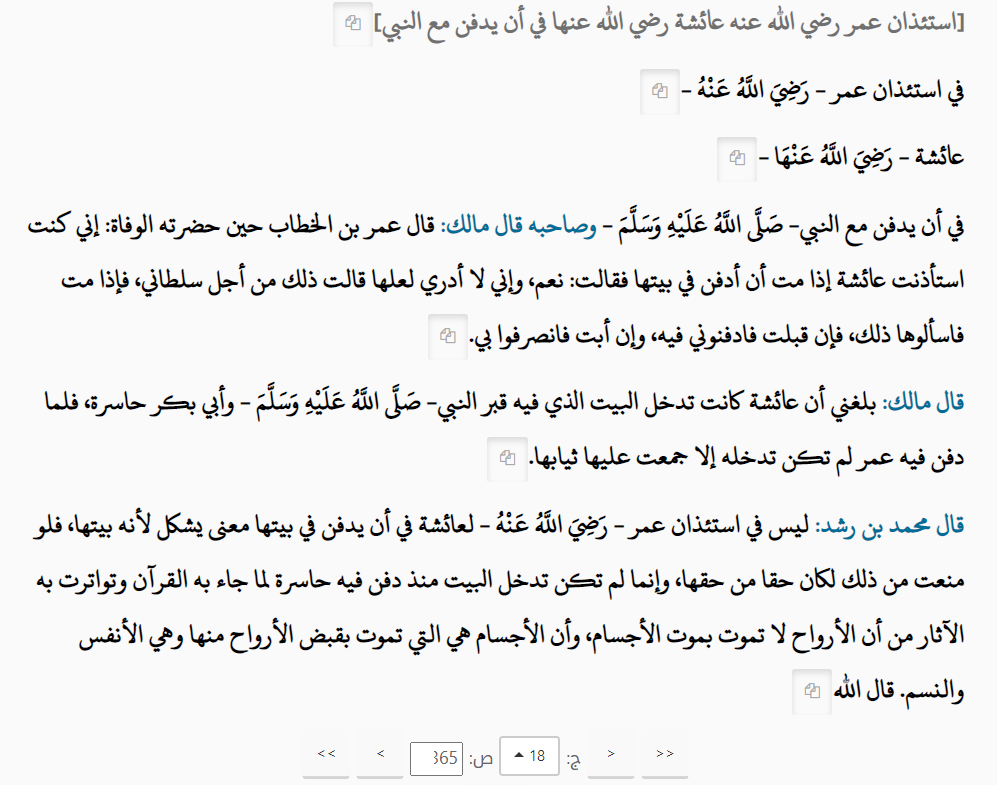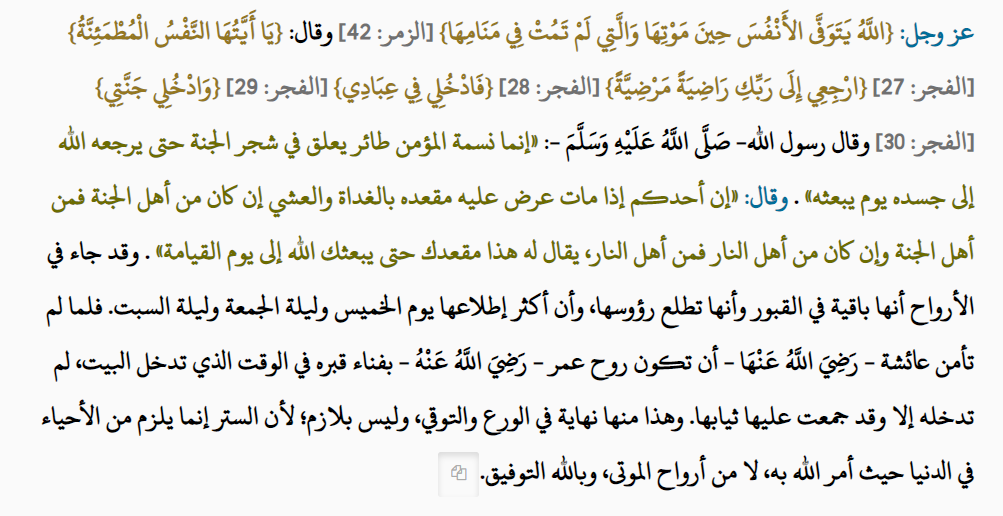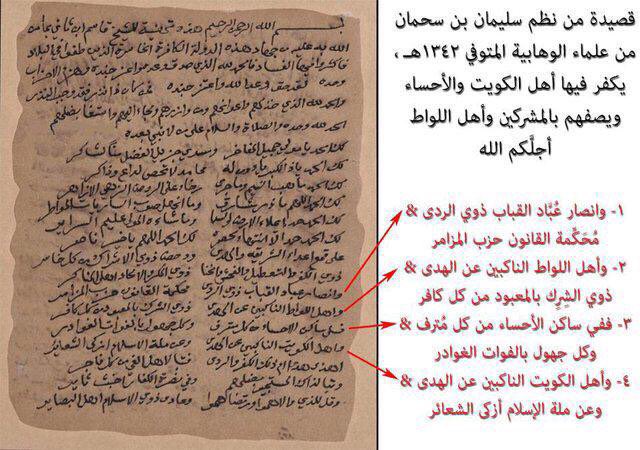One of the significant heretical innovations present in our times is the methodology of La-Madhabism, which advocates for the abandonment of the established four Sunni school of laws – Hanafi, Maliki, Shafi’i & Hanbali- in favor of deriving and reinventing rulings directly from the Quran and Hadith. This trend has been influenced by various winds, from modernist reformers seeking to reform the religion to imitate and be in harmony with European values, echoes of Protestant Christianity, strains of Zaidism/Shiism who carry Mutazilite positions that staunchly oppose Taqlid and advocate for Ijthihad, and to some extent misappropriating the 7th-century scholar Ibn Taymiyya, who was infamous for opposing Ijma and the Hanbali school on a few issues.
While purportedly aiming to unify Muslims, La-Madhabism instead bred discord, even over minor points of contention. They entered into various Muslim lands and spread their alien views on numerous issues, cloaked as the sole possessor of the pristine religion, at times even considering Islam to have truly entered these lands upon their arrival, picking fight with Muslims who follow traditionally established schools of law, declaring traditionalist scholarship as heretics, establishing their exclusive Masjids right next to existing ones, degrading the quality and standards of Islamic scholarship and discourse with their protestant style of preaching & learning, and wasting huge sums of money, time and energy of Muslim world over all of this.
Ironically, this movement swiftly deteriorated into a pseudo-school of thought, blindly adhering to the fatwas of contemporary scholars such as Ibn Baz, Ibn Uthaymin and al-Albani, devoid of any foundational principles and consistency. Moreover, it fragmented into numerous factions, with each “Salafi” being divided by generation, region, nationality, government, political group or other ideology, following its own cult-like leaders, each with differing and contradicting positions and readily denouncing each other as heretical, which to an extent mirrors the disintegration of Protestant Christianity into numerous sub-sects.
In light of these developments, it’s noteworthy that early Wahhabiyya found themselves compelled to disassociate from La-Madhabism after facing accusations of its promotion. Abd Allah bin Muhammed Bin Abdul Wahhab, the son of the movement’s founding father, penned down the following in one of his letters, as documented in their own book “al-Durar al-Saniyyah”:

https://shamela.ws/book/3055/221
Translation:
We are also in the matters of jurisprudence, upon the school of Imam Ahmad bin Hanbal. We do not condemn the one who imitates one of the four Imams, as opposed to those besides them (the four)…..such as the Raafidah, Zaydiyah and Imamiyah and their likes. And we do not openly approve any of their corrupt madhabs (i.e. that of Rafidah, Zaydiyah and Imamiyah). Rather, we compel them to imitate one of the four Imams.
And we do not deserve the rank of absolute ijtihad and there is none amongst us who lays claim to it, except that in some issues, when a authentic clear text from the Book or Sunnah, which is not abrogated, nor specified, nor contradicted by something stronger than it, and one of the four Imams have spoken about it, we take it and we leave our madhab, such as in the inheritance of the grandfather and brothers, than we give precedence to the grandfather in the inheritance even though it opposes the madhab of the Hanbalis.
The following is evident from this admission:
- The default approach is to follow one of the four schools, abiding by it, preaching, preserving and transmitting it. This stands in contrast to those who have abandoned all of this, opting instead to directly delve into the Quran and Hadith and extract rulings directly from it as if they have attained complete mastery over them. What’s more, some among them feign expertise in all four schools, presuming to arbitrate which one aligns best with the Quran and Hadith.
- There is no condemnation in following one of the four schools. This differs from those who brand Muslims as “blind” adherents, insisting on verifying every stance of the school with the Quran and Hadith.
- Early Wahhabis neither asserted nor regarded any among them as absolute mujtahids. Yet we have folks today who elevate the founders of Wahhabism as the pinnacle of understanding Islam and monotheism. Even more concerning, is people taking a fresh graduate from Medina university or the likes, as a mujtahid more reliable that the Imams of the four school.
- The exceptional case allowed by Wahhabi founding fathers for deviation from the position of their chosen school, in favor of what is apparent to them from the Quran or Hadith is when:
- It is a clear and authentic text,
- Not abrogated,
- Nor specified,
- Nor contradicted by something stronger than it,
- And one of the four Imams have spoken about it.
It is only under these over arching conditions (and obviously, provided that the individual is qualified to evaluate these conditions), they permitted divergence from the positions of their chosen school. Furthermore, the last condition restricts any deviation to remain within the opinions articulated by the four Imams and not beyond. One has to also bear in mind that this assessment and judgement to deviate from the position of the school is prone to disagreement. Consequently, it is not binding upon others to follow suit and abandon their school when there is no agreement on the conclusion arrived by the scholar, and it is extreme fanaticism to utilize these issues to ostracize and brand fellow Muslims including their own parents as heretics and condemn them to the hell fire and forcefully impose by the sword their views among Muslim masses.









